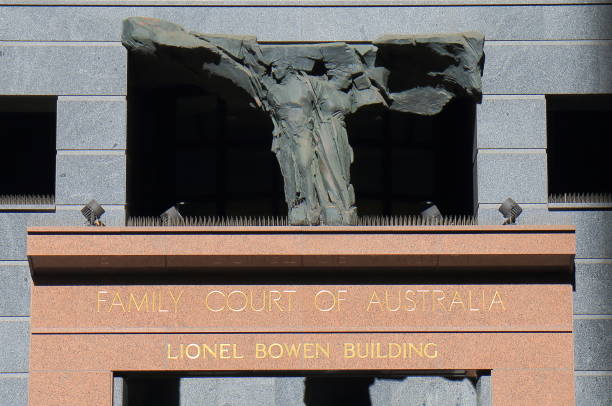This article will outline other provisions Family Law Act 1975 which is the Act that governs family law matters in Australia. The Federal Circuit and Family Court of Australia (FCFCOA) (Division 2) is the court responsible for hearing cases about family law matters. All federal family law matters will be filed in the FCFCOA (Division 2).
However, the FCFCOA, together with the state and territory supreme courts, also have limitations on jurisdiction. Section 40 of the Family Law Act mentions these limitations. The section states that FCFCOA (Division 2) under this Act or the FCFCOA Act 2021 in relation to all proceedings, or a specified class of proceedings, may not be exercised in:
- A specified State or Territory.
- In two or more specified States or Territories, as of a date specified in the regulations (not being a date before the regulations are registered under the Legislation Act 2003).
Read on to know more about other provisions Family Law Act.
Powers of the Governor-General
Other provisions Family Law Act also provide that the Governor-General may fix a date as the date on and after which matrimonial causes, and other proceedings may not be instituted in, or may be transferred to the Supreme Court of a State or Territory. Subsection 39(5) states these matrimonial causes and other proceedings.
However, these matrimonial causes and other proceedings may be instituted or transferred, but only if certain conditions are met. Such a proclamation may state that it exclusively applies to certain classes of actions. A State or Territory’s Supreme Court may not hear or determine any matter lodged there or transferred there in accordance with this Act. However, they may do so unless it is in accordance with any Governor general proclamations.
Other Provisions Family Law Act: Revoking Proclamations
The Governor-General may also revoke any proclamations on a specific date. This Act including the Governor-General proclamations has an effect on and after the specified date as if the Governor-General did not revoke proclamation.
However, this does not affect the effect of the revoked proclamation in regard to the jurisdiction of courts prior to the specified date. Governor-general can make proclamations from time to time. Parties to any proceedings that have cases prior to the implementation of this section may apply to transfer their case to a court that may make orders accordingly.
The courts responsible for making provisions for transferred cases are the FCFCOA (Division 1 and Division 2). This section does not apply to proceedings under Part VII of the Family Law Act. Additionally, this section does not also apply to the jurisdiction conferred on a federal court or territory regarding international agreements about adoption.

Section 41: Establishment of State Family Courts
According to Section 41 under other provisions Family Law Act, the Commonwealth Government shall make agreements with state governments when establishing state family courts. The Commonwealth Government must also provide the necessary funds for the courts’ establishment and administration. This includes the provision of counselling facilities for those courts.
This section applies to courts that were family courts before or after the commencement of this Act. If this is the case, this Act has the same effect with regard to the institution of proceedings on or after the date specified by the Proclamation. This includes proceedings transferred to that court in accordance with this Act and references to the Supreme Court in sections:
- 39 (Jurisdiction in Matrimonial Causes)
- 46 (Transfer of proceedings from court of summary jurisdictions in certain cases)
- 47A (Appeals from courts of summary jurisdictions)
- 47B (Leave to appeal for child support matters); and
- subsection 26(1) of the FCFCOA Act 2021.
Other Provisions Family Law Act: Eligible Proceedings
Despite the issuance of a proclamation pursuant to Section 41 subsection (2) and the rules in subsection (3), the Supreme Court may institute, hear or determine the following on or after the date of the proclamation:
- Proceedings by means of cross-proceedings in connection to major relief cases that were pending in the State’s Supreme Court before the date set by the Proclamation
- Matrimonial cause proceedings that refer to actions for primary relief that were pending in the State’s Supreme Court prior to the date set by the Proclamation.
- Matrimonial cause proceedings that were between parties that were pending in the State’s Supreme Court prior to the date set by the Proclamation.
The Governor-General may issue a proclamation under section 41 of other provisions Family Law Act about a court only if he or she is certain that:
- There are no appointed judges in court without the Attorney-General’s approval.
- These judges are qualified to handle family law disputes due to their training, experience, and personalities, and they cannot serve past the age of 70.
- Family counselling, family dispute resolution, and family consultants are available to that court.
Parties who have pending proceedings started or continued under this Act in the Supreme Court of a State or Territory may apply to a Family Court of a State for an order transferring the proceedings to that Court. One must not construe references to a court with summary jurisdiction made in this Act or the relevant Rules of Court to include references to courts covered by this section.

Importance of Seeking Legal Advice
Some parties may have pending proceedings before the commencement of the Family Law Act. What they may not know is they may still have their cases transferred to a court that is eligible to handle them. Whatever the type of family law case is, these parties must still seek proper legal advice from family lawyers.
JB Solicitors may discuss other provisions Family Law Act that may apply to their client’s cases. Our family law services can help clients understand their circumstances in their legal matters in accordance with state laws and regulations. We have mediation and arbitration services for disputed parties who prefer a cost-effective way of finding amicable resolutions for their case.
Contact us today to know more about other provisions Family Law Act.
